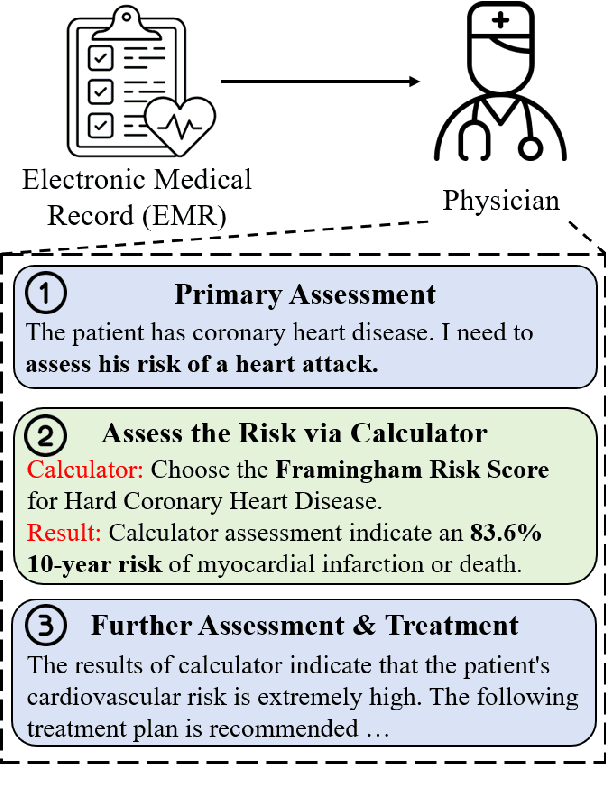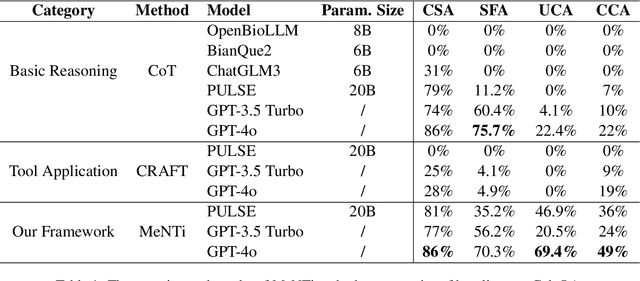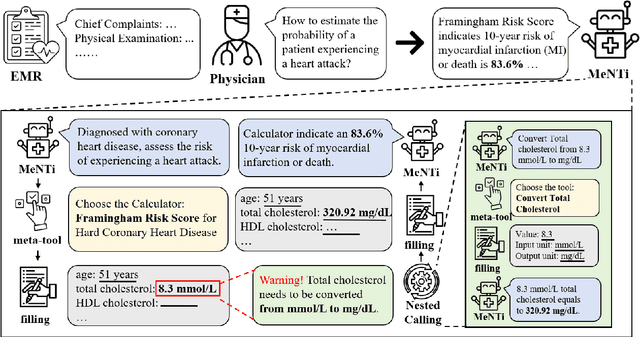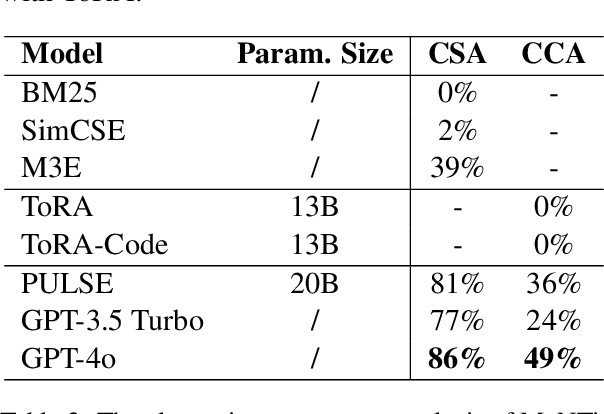Shaohang Wei
Probability-Entropy Calibration: An Elastic Indicator for Adaptive Fine-tuning
Feb 02, 2026Abstract:Token-level reweighting is a simple yet effective mechanism for controlling supervised fine-tuning, but common indicators are largely one-dimensional: the ground-truth probability reflects downstream alignment, while token entropy reflects intrinsic uncertainty induced by the pre-training prior. Ignoring entropy can misidentify noisy or easily replaceable tokens as learning-critical, while ignoring probability fails to reflect target-specific alignment. RankTuner introduces a probability--entropy calibration signal, the Relative Rank Indicator, which compares the rank of the ground-truth token with its expected rank under the prediction distribution. The inverse indicator is used as a token-wise Relative Scale to reweight the fine-tuning objective, focusing updates on truly under-learned tokens without over-penalizing intrinsically uncertain positions. Experiments on multiple backbones show consistent improvements on mathematical reasoning benchmarks, transfer gains on out-of-distribution reasoning, and pre code generation performance over probability-only or entropy-only reweighting baselines.
Two Pathways to Truthfulness: On the Intrinsic Encoding of LLM Hallucinations
Jan 12, 2026Abstract:Despite their impressive capabilities, large language models (LLMs) frequently generate hallucinations. Previous work shows that their internal states encode rich signals of truthfulness, yet the origins and mechanisms of these signals remain unclear. In this paper, we demonstrate that truthfulness cues arise from two distinct information pathways: (1) a Question-Anchored pathway that depends on question-answer information flow, and (2) an Answer-Anchored pathway that derives self-contained evidence from the generated answer itself. First, we validate and disentangle these pathways through attention knockout and token patching. Afterwards, we uncover notable and intriguing properties of these two mechanisms. Further experiments reveal that (1) the two mechanisms are closely associated with LLM knowledge boundaries; and (2) internal representations are aware of their distinctions. Finally, building on these insightful findings, two applications are proposed to enhance hallucination detection performance. Overall, our work provides new insight into how LLMs internally encode truthfulness, offering directions for more reliable and self-aware generative systems.
Mitigating Overthinking through Reasoning Shaping
Oct 10, 2025Abstract:Large reasoning models (LRMs) boosted by Reinforcement Learning from Verifier Reward (RLVR) have shown great power in problem solving, yet they often cause overthinking: excessive, meandering reasoning that inflates computational cost. Prior designs of penalization in RLVR manage to reduce token consumption while often harming model performance, which arises from the oversimplicity of token-level supervision. In this paper, we argue that the granularity of supervision plays a crucial role in balancing efficiency and accuracy, and propose Group Relative Segment Penalization (GRSP), a step-level method to regularize reasoning. Since preliminary analyses show that reasoning segments are strongly correlated with token consumption and model performance, we design a length-aware weighting mechanism across segment clusters. Extensive experiments demonstrate that GRSP achieves superior token efficiency without heavily compromising accuracy, especially the advantages with harder problems. Moreover, GRSP stabilizes RL training and scales effectively across model sizes.
Well Begun is Half Done: Low-resource Preference Alignment by Weak-to-Strong Decoding
Jun 09, 2025



Abstract:Large Language Models (LLMs) require alignment with human preferences to avoid generating offensive, false, or meaningless content. Recently, low-resource methods for LLM alignment have been popular, while still facing challenges in obtaining both high-quality and aligned content. Motivated by the observation that the difficulty of generating aligned responses is concentrated at the beginning of decoding, we propose a novel framework, Weak-to-Strong Decoding (WSD), to enhance the alignment ability of base models by the guidance of a small aligned model. The small model first drafts well-aligned beginnings, followed by the large base model to continue the rest, controlled by a well-designed auto-switch mechanism. We also collect a new dataset, GenerAlign, to fine-tune a small-sized Pilot-3B as the draft model, which effectively enhances different base models under the WSD framework to outperform all baseline methods, while avoiding degradation on downstream tasks, termed as the alignment tax. Extensive experiments are further conducted to examine the impact of different settings and time efficiency, as well as analyses on the intrinsic mechanisms of WSD in depth.
TIME: A Multi-level Benchmark for Temporal Reasoning of LLMs in Real-World Scenarios
May 19, 2025Abstract:Temporal reasoning is pivotal for Large Language Models (LLMs) to comprehend the real world. However, existing works neglect the real-world challenges for temporal reasoning: (1) intensive temporal information, (2) fast-changing event dynamics, and (3) complex temporal dependencies in social interactions. To bridge this gap, we propose a multi-level benchmark TIME, designed for temporal reasoning in real-world scenarios. TIME consists of 38,522 QA pairs, covering 3 levels with 11 fine-grained sub-tasks. This benchmark encompasses 3 sub-datasets reflecting different real-world challenges: TIME-Wiki, TIME-News, and TIME-Dial. We conduct extensive experiments on reasoning models and non-reasoning models. And we conducted an in-depth analysis of temporal reasoning performance across diverse real-world scenarios and tasks, and summarized the impact of test-time scaling on temporal reasoning capabilities. Additionally, we release TIME-Lite, a human-annotated subset to foster future research and standardized evaluation in temporal reasoning. The code is available at https://github.com/sylvain-wei/TIME , and the dataset is available at https://huggingface.co/datasets/SylvainWei/TIME .
Odysseus Navigates the Sirens' Song: Dynamic Focus Decoding for Factual and Diverse Open-Ended Text Generation
Mar 11, 2025Abstract:Large Language Models (LLMs) are increasingly required to generate text that is both factually accurate and diverse across various open-ended applications. However, current stochastic decoding methods struggle to balance such objectives. We introduce Dynamic Focus Decoding (DFD), a novel plug-and-play stochastic approach that resolves this trade-off without requiring additional data, knowledge, or models. DFD adaptively adjusts the decoding focus based on distributional differences across layers, leveraging the modular and hierarchical nature of factual knowledge within LLMs. This dynamic adjustment improves factuality in knowledge-intensive decoding steps and promotes diversity in less knowledge-reliant steps. DFD can be easily integrated with existing decoding methods, enhancing both factuality and diversity with minimal computational overhead. Extensive experiments across seven datasets demonstrate that DFD significantly improves performance, providing a scalable and efficient solution for open-ended text generation.
MeNTi: Bridging Medical Calculator and LLM Agent with Nested Tool Calling
Oct 17, 2024



Abstract:Integrating tools into Large Language Models (LLMs) has facilitated the widespread application. Despite this, in specialized downstream task contexts, reliance solely on tools is insufficient to fully address the complexities of the real world. This particularly restricts the effective deployment of LLMs in fields such as medicine. In this paper, we focus on the downstream tasks of medical calculators, which use standardized tests to assess an individual's health status. We introduce MeNTi, a universal agent architecture for LLMs. MeNTi integrates a specialized medical toolkit and employs meta-tool and nested calling mechanisms to enhance LLM tool utilization. Specifically, it achieves flexible tool selection and nested tool calling to address practical issues faced in intricate medical scenarios, including calculator selection, slot filling, and unit conversion. To assess the capabilities of LLMs for quantitative assessment throughout the clinical process of calculator scenarios, we introduce CalcQA. This benchmark requires LLMs to use medical calculators to perform calculations and assess patient health status. CalcQA is constructed by professional physicians and includes 100 case-calculator pairs, complemented by a toolkit of 281 medical tools. The experimental results demonstrate significant performance improvements with our framework. This research paves new directions for applying LLMs in demanding scenarios of medicine.
 Add to Chrome
Add to Chrome Add to Firefox
Add to Firefox Add to Edge
Add to Edge